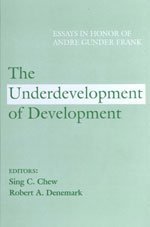What do you think?
Rate this book


This is an excellent synthesizing volume on the state of development studies. Although a great part of its purpose is to pay tribute to its intellectual father, the book presents a clear, logical and organized view of world systems analysis.
Paperback
First published January 29, 1996